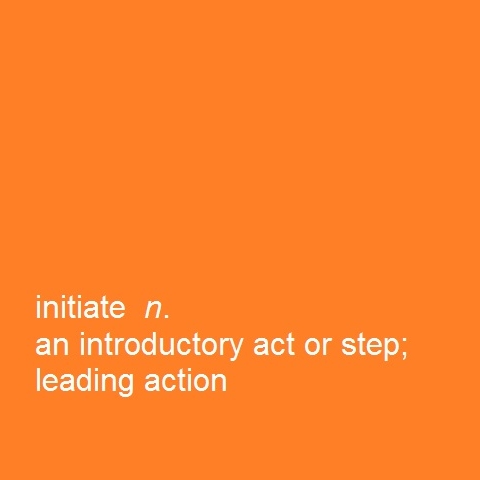Since 2003, ICARA's founder, Patrice Penney, has lived and worked in Kenya, and consulted and trained in Rwanda, Ethiopia, and other parts of Africa. All her professional life she has been passionate about the needs of children at risk (both in Chicago and East Africa). As a clinical social worker, living and working in African culture, she has engaged in counseling, teaching, training, and research to understand and meet children's needs. Patrice has been moved by the needs of the children due to the trauma they have experienced, requiring urgent caregiver training to provide nurturing caregiving and reduce the risks for these children.
The risk factors for these children include poverty; orphaning and abandonment; violent communities; physical, emotional, sexual abuse and neglect; child status; parents who are HIV+ or have other illness; war, regional conflict and refugee status. Most of the children have not one, but an accumulation of risk factors, which have derailed healthy child development. These are children who are grieving tremendous losses, and who are suffering from trauma.
As Patrice has engaged with caregivers and orphans in many different contexts, and studied the available research on OVC’s in Africa, it has become clear that developing counseling interventions for individual children would barely scratch the surface in meeting the needs of these children, who are in both extended family contexts and also institutional care. Why? The sheer numbers of African[i] orphans, [estimates of close to 60 million[ii]], prohibits any idea of individual counseling for most orphans. Further, counseling is a relatively new endeavor in sub-Saharan Africa, met with considerable mistrust, misunderstanding, and stigma, and there are woefully few trained counselors to meet the overwhelming need. While counseling for traumatized children needs to be addressed, it is not viable on a large scale.
Furthermore, a foundational premise of the Initiative for Children at Risk Africa is that every African orphan needs and deserves a loving caregiver, who will anchor the child in secure attachment[iii], which gives the child a sense of belonging, being loved, being “felt”, and being secure. When this need is met, children who have experienced severe loss and trauma may be able to heal without further intervention. This reduces their ‘at risk” status by providing for their fundamental need, putting in place crucial protective factors.
So what will help orphaned and vulnerable children be securely attached to caregivers? Patrice has turned her attention to caregiver training, with the goal of equipping caregivers to build attachment security with children in their care, enabling the children to grow and thrive emotionally. Caregiver training has been documented in the existing research into the psychological health of orphans and vulnerable children as a very significant need, currently unmet. The training focuses on enabling African caregivers to better understand child development, the needs of OVC’s who have suffered loss and trauma, and how that severely damages normal development, and focuses on caregiving and interventions that can help children address their social and emotional needs once placed at risk.
Our Name
We chose “initiative” because it means “an introductory act or step; leading action”; and “the power or ability to begin or to follow through energetically with a plan or task with determination”. Initiative describes beautifully the idea of this organization, which is to initiate action on behalf of orphaned and vulnerable children [OVCs] right now around their psychosocial health, so that the hearts of the current generation of OVCs will be nurtured by a quality standard of care—that of loving, supportive caregiving focused on child development across all domains and from birth to young adult maturity.
The second part of the name is “children at risk”. There are a number of terms that describe children who are in danger of not thriving as they grow and develop, and “children at risk” is the most comprehensive, and a widely understood term in the African context. Another phrase is “orphans and vulnerable children” or OVCs. Both terms are used in documents from UNICEF and the World Bank, in academic research, and in the narrative of ICARA.
While “children at risk” is very broad, it also helps move the discussion to all of the factors that hinder children from thriving, one of which is orphaning—but there are many others—poverty, regional conflicts and wars, refugee status, violence in communities, physical and sexual violence.
For further discussion of “children at risk” in Africa, see
http://www.unicef.org/sowc06/pdfs/africas_orphans.pdf, and
http://www.unicef.org/publications/files/Africas_Orphaned_and_Vulnerable_Generations_Children_Affected_by_AIDS.pdf, also
http://info.worldbank.org/etools/docs/library/162495/howknow/definitions.htm.
Finally, Africa.
Africa is a very large and diverse continent, with over fifty countries. For the purposes of ICARA, Africa means “sub-Saharan” Africa with its many diverse cultures and languages. This organization, though it is small, is willing to be involved anywhere in Africa that there is an invitation, a need presented, an organization on the ground with whom we can work. If ICARA is involved in three countries or thirty-three, we will be thrilled to come alongside local organizations caring for children at risk.
[i] Africa throughout this document refers to sub-Saharan, or Black Africa, not including the portions of the Middle East that are found on the northernmost parts of the African continent.
[ii] This number comes from the latest figures from UNICEF.
[iii] For a more substantive discussion of secure attachment, see the work of John Bowlby, or a recent discussion in Daniel Hughes' Attachment Focused Parenting (2009).





